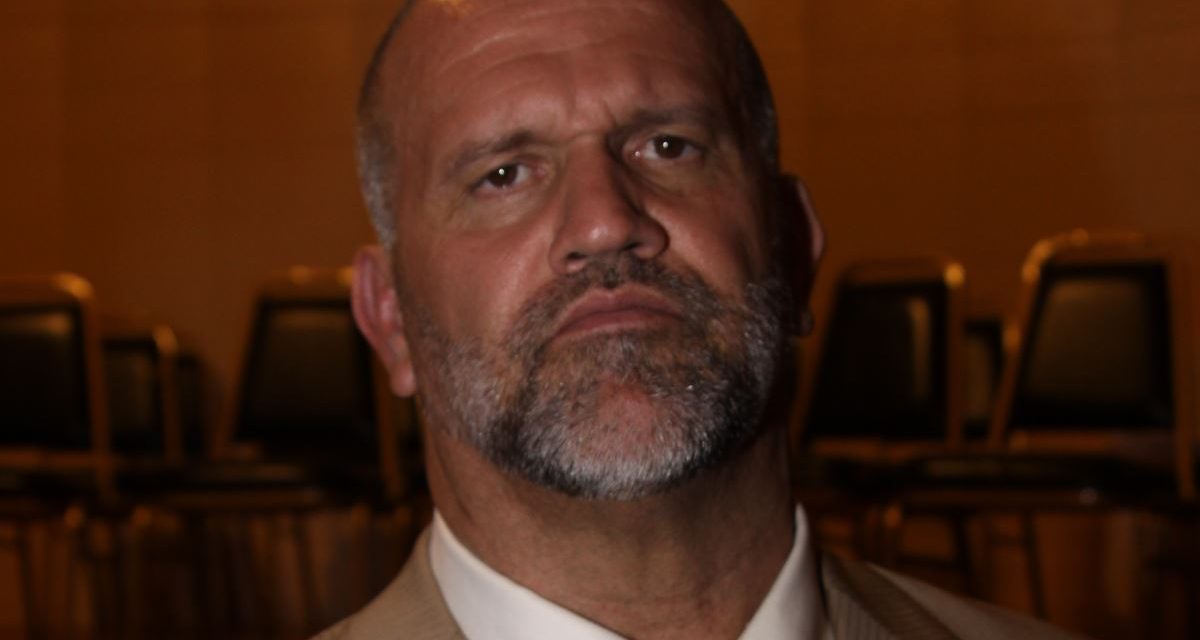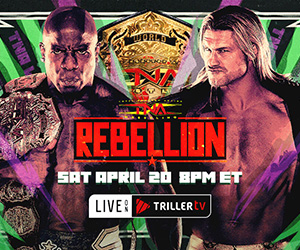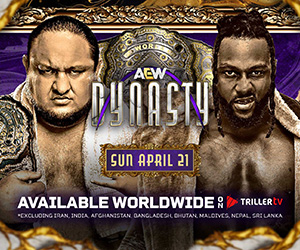At the May 2011 induction ceremony to the Professional Wrestling Hall of Fame, “Precious” Paul Ellering, manager to the Road Warriors, stood beside Road Warrior Animal (Joe Laurinaitas), and said a little poem in tribute to those who had gone before, including their brother, Road Warrior Hawk (Mike Hegstrand) in 2003:
Wrestling legends never die
They just fade away
They fade away in memories
Where they are forever young.
With the sudden death of Laurinaitas on September 22, those words are ever more poignant.
The Road Warriors were my tag team, my era, the 1980s. They were everything the cartoony WWF wasn’t. They arrived, kicked ass, and left. They were violent and scary.
How scary?
I was a 15-year-old kid, backstage at a Pro Wrestling Canada event in Kitchener, Ontario, on November 23, 1986, which was the attempt by Angelo Mosca and Milt Avruskin to revive the National Wrestling Alliance in southern Ontario. Also, there was my best friend, Serge Solski, and we were trying to get interviews for the Canadian Wrestling Report newsletter.
There he was, Road Warrior Animal.
Gulp.
I bailed, Serge didn’t. He got the interview.
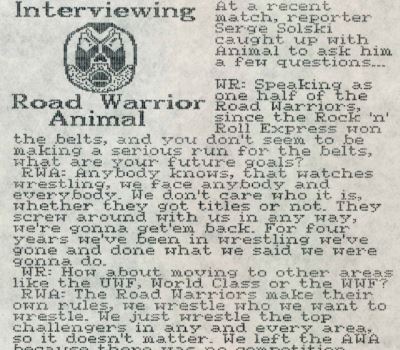
It never got a lot easier.
Joe Laurinaitas was naturally gruff, I think, at least in terms of media. He enjoyed the intimidation factor. He had an aura to maintain, one of toughness, one of unapproachability.
An example? How about this photo I took at the Pro Wrestling Hall of Fame induction. Shouldn’t someone who had been honoured by his peers be smiling?
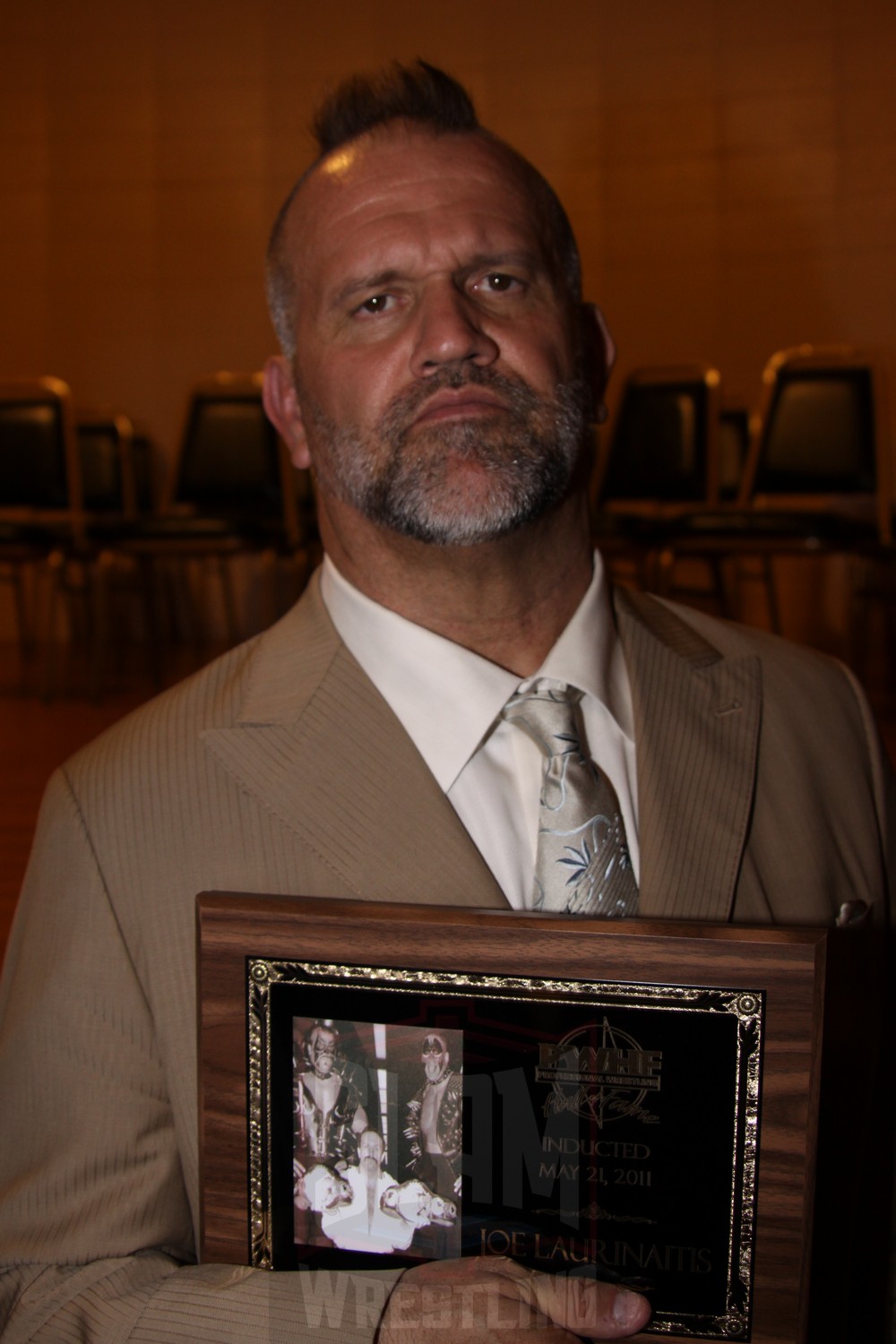
Road Warrior Animal at the Pro Wrestling Hall of Fame in May 2011, in Amsterdam, NY. Photo by Greg Oliver
Now, that’s not to say that he wasn’t a good interview. He was. We have a very rich Road Warriors story archive here at SlamWrestling.net.
I was reminded today that he didn’t agree with something that we wrote in a story about Road Warrior Hawk’s death. “I let him rant then we ended up just talking. A very nice and passionate guy,” recalled John Powell. “It impressed me that he cared so much about Hawk that he was willing to actually hunt down our number at the Toronto Sun and personally call us. I think that speaks a lot about their friendship.”
By putting Ellering upfront as their manager — both on-screen and behind the scenes — the Roadies were able to cultivate even more of a menace like they were unthinking brutes who got off on violence.
It’s been the opposite seeing the reaction from his peers, those he helped along the way, as they share their own memories of Laurinaitas. He was friendly, a pal, looked out for others. Something that Animal said at the 2011 PWHF induction makes more sense now. “We always appreciated the guys, the boys, the guys we were in the ring with. The guys that are in the room today, the guys that aren’t with us, that pounded the pavement, sometimes when it was fifty bucks and a six-pack of beer for your payoff. You gave us the opportunity to get into this business and succeed by the fruit of our labour. We cannot express our thanks and gratitude enough.”
The Road Warriors were #2 all-time in the book, The Pro Wrestling Hall of Fame: The Tag Teams, that I wrote with Steve Johnson, which came out in 2005. (The Fabulous Kangaroos were #1, partly because they were the first truly great tag team, setting the standard for all that were to follow.)
It was a tough choice, especially setting aside that early fandom of mine.
The Road Warriors were the 2020 tag team honorees at the Cauliflower Alley Club reunion, postponed from April to September, and then cancelled, due to the pandemic. If the 2021 reunion does happen in Las Vegas, Ellering will have an even tougher job.
I know that he will rise to the occasion, as the Road Warriors did time after time.
RELATED LINK
